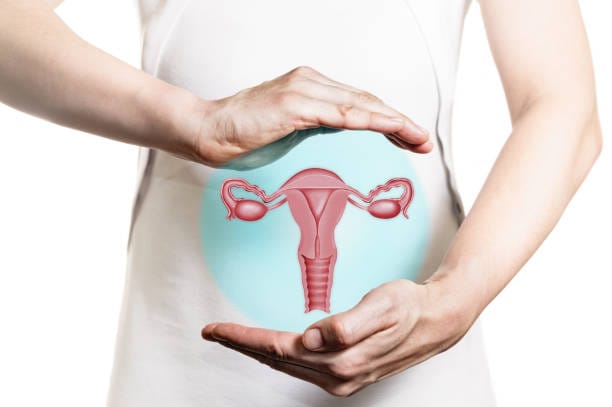Fertility is a word that carries with it hope, longing, and sometimes heartache. For many, the journey to parenthood begins with a simple desire—a growing whisper that becomes a roar of determination. And while conception may appear to be one of nature’s most instinctive acts, it often proves far more complex than expected.
The good news is that fertility is not solely dictated by fate or medical intervention. Nature has always offered its own gentle remedies. From the foods we eat to the rhythms we follow, natural approaches to enhancing fertility can make a powerful difference. In this article, we’ll explore the science and stories behind how your body, mind, and lifestyle all play roles in creating the optimal environment for new life to begin.
Understanding Fertility Before Trying to Enhance It
Before diving into natural methods, it’s essential to understand what fertility actually involves. In biological terms, fertility is the ability to conceive and bear children. For women, it depends on healthy ovulation, a receptive uterus, and balanced hormones. For men, it hinges on the production of strong, motile sperm in sufficient quantities. But fertility is more than biology—it’s affected by mental health, lifestyle habits, environmental toxins, and even the timing of intimacy.
One of the biggest misconceptions is that age is the only factor influencing fertility. While age is undeniably important—especially for women—numerous other elements come into play. Hormonal imbalances, poor diet, lack of sleep, exposure to chemicals, and unmanaged stress can all quietly sabotage efforts to conceive. Conversely, adjusting these factors in natural, thoughtful ways can gently tip the odds back in your favor.
Food as Fertility Fuel
Our ancestors may not have understood endocrinology, but they knew instinctively that nutrition mattered deeply to reproduction. Today, science supports what traditional wisdom has long held true: what you eat has a profound effect on your fertility.
Nutrient-rich foods don’t just improve your overall health—they specifically support hormone regulation, egg and sperm quality, and reproductive organ function. Certain vitamins and minerals play crucial roles. Zinc, for example, is critical for sperm production and ovulation. Folate helps prevent neural tube defects and may also improve egg quality. Omega-3 fatty acids reduce inflammation and promote hormone balance, while antioxidants like vitamin C and E protect eggs and sperm from damage.
Whole, unprocessed foods are your best allies. Think vibrant fruits and vegetables, leafy greens, organic eggs, nuts, seeds, legumes, wild-caught fish, and healthy fats like olive oil and avocado. These foods provide the building blocks your body needs to function at its reproductive best.
On the other hand, processed foods, sugary snacks, trans fats, and excessive caffeine or alcohol can wreak havoc on your hormonal ecosystem. Blood sugar spikes, insulin resistance, and chronic inflammation can disrupt ovulation, reduce sperm quality, and make conception more difficult. That’s why a clean, balanced, and nourishing diet is one of the most powerful tools you have in your fertility toolkit.
Balancing Hormones Naturally
Hormones are the invisible architects of fertility. They orchestrate every step of the reproductive process—from follicle development and ovulation to implantation and pregnancy maintenance. But these delicate messengers are easily disrupted by stress, environmental toxins, and poor lifestyle habits.
To naturally support hormone balance, the body needs rhythm and nourishment. For women, this means fostering regular menstrual cycles, which are a reflection of hormonal harmony. Irregular periods often signal imbalances in estrogen, progesterone, or luteinizing hormone—any of which can make conception difficult.
One natural approach is seed cycling, a traditional method that involves eating specific seeds during different phases of your menstrual cycle to support estrogen and progesterone production. For example, flax and pumpkin seeds during the follicular phase, and sunflower and sesame seeds during the luteal phase.
Adaptogenic herbs like maca root, ashwagandha, and vitex (chasteberry) are also widely used in natural fertility circles. These herbs work by modulating the endocrine system, supporting adrenal health, and improving ovulation or luteal phase defects. While results vary from person to person, many find these herbs to be gentle yet effective allies on their fertility journey.
Sleep is another unsung hero in hormone regulation. During deep rest, the body produces melatonin and human growth hormone—both of which play roles in fertility. Lack of sleep can elevate cortisol (the stress hormone), throwing off your reproductive rhythm. Making sleep a non-negotiable priority can support hormone harmony in subtle but powerful ways.
The Fertility-Stress Connection
Few things are more frustrating than being told to “just relax” when trying to conceive. And yet, there is real science behind the idea that chronic stress impairs fertility. Stress triggers a cascade of hormonal reactions that can interfere with ovulation, reduce libido, and affect sperm count.
When you’re in a state of constant fight-or-flight, your body interprets the environment as unsafe for reproduction. Cortisol competes with sex hormones for production and receptor access. The result? Disrupted cycles, anovulation, or poor sperm parameters.
But here’s where the natural approach shines: techniques like mindfulness, breathwork, meditation, and yoga have been shown to lower cortisol levels, reduce inflammation, and promote parasympathetic activity—the state your body needs to conceive.
Mind-body practices like fertility-focused yoga not only relax the nervous system but also increase blood flow to the reproductive organs. Visualization, journaling, and acupuncture can also help align your mental and emotional energies with your physical intentions, creating a more hospitable internal landscape for new life.
Gut Health and Its Surprising Role in Fertility
The gut is often referred to as the “second brain,” but its influence extends far beyond digestion. Gut health plays a critical role in fertility, particularly through its impact on estrogen metabolism and immune regulation.
An imbalanced gut microbiome—due to antibiotics, poor diet, or stress—can result in estrogen dominance, where too much estrogen circulates in the body without being properly excreted. This can lead to irregular periods, endometriosis, and difficulty conceiving.
A healthy gut supports the liver in breaking down excess hormones and helps maintain the delicate balance required for reproductive health. Prebiotics, probiotics, fermented foods, and fiber-rich vegetables all support gut function and hormone balance.
Additionally, inflammation stemming from gut dysbiosis can contribute to autoimmune reactions, which are increasingly recognized as a hidden cause of infertility. Supporting gut health can help reduce this silent inflammation and create an internal environment conducive to conception.
Detoxifying Your Environment
In the modern world, our bodies are constantly bombarded by environmental toxins. Many of these chemicals act as endocrine disruptors—substances that interfere with hormone production, mimic estrogen, or block hormonal receptors.
Common culprits include BPA (found in plastics), phthalates (in personal care products), pesticides (on non-organic produce), and parabens (in cosmetics). These toxins can accumulate in the body and disrupt the delicate hormonal dance required for fertility.
Detoxifying your home and body doesn’t require perfection—just mindfulness. Switching to glass or stainless steel containers, choosing organic produce when possible, using natural cleaning and beauty products, and filtering your drinking water are all meaningful steps. Supporting your liver with cruciferous vegetables, turmeric, milk thistle, and hydration can also aid in the body’s natural detoxification processes.
Understanding Your Cycle and Timing Intimacy
One of the most empowering things you can do on your fertility journey is to understand your own cycle. Ovulation tracking is not just for avoiding pregnancy—it’s one of the most powerful tools for achieving it.
Your fertile window—the five days leading up to and including ovulation—is the time when conception is most likely. Learning to identify this window through cervical mucus monitoring, basal body temperature (BBT), and ovulation predictor kits (OPKs) can significantly increase your chances of success.
Cervical mucus becomes stretchy and clear, like egg whites, around ovulation. Basal body temperature rises slightly after ovulation due to progesterone. OPKs detect the surge in luteinizing hormone that precedes ovulation. Together, these signs can help you time intimacy more effectively, aligning your natural rhythm with your reproductive intentions.
Natural Support for Male Fertility
Too often, fertility is viewed as a “women’s issue,” when in reality, men are half the equation. Sperm quality, motility, and count are just as vital to conception as egg health. Fortunately, male fertility is also highly responsive to natural interventions.
Zinc, selenium, CoQ10, vitamin C, and omega-3s are all critical nutrients for sperm development and function. Antioxidants protect sperm from oxidative damage, while certain herbs like ashwagandha and tongkat ali have been shown to improve testosterone levels and sperm motility.
Lifestyle factors also matter. Heat exposure (such as from laptops or saunas), tight clothing, smoking, alcohol, and poor sleep can all degrade sperm quality. Small changes—like wearing looser underwear, reducing alcohol, quitting smoking, and getting regular exercise—can have measurable impacts on sperm parameters within just a few months.
Movement, Blood Flow, and Fertility Fitness
Exercise is a double-edged sword when it comes to fertility. The right kind of movement supports hormone balance, boosts mood, and improves circulation to the reproductive organs. But excessive or intense exercise—especially in women—can disrupt ovulation and lower fertility.
Gentle, consistent movement is ideal. Walking, yoga, Pilates, swimming, and light strength training help keep the body flexible, oxygenated, and hormonally balanced. Exercise also supports insulin sensitivity and lowers stress—two big factors in conditions like PCOS and unexplained infertility.
Dance, tai chi, or even fertility-specific workouts can be joyful ways to reconnect with your body. Movement should feel nourishing, not punishing. The goal isn’t weight loss or sculpting abs—it’s cultivating a body that feels strong, safe, and ready to create life.
Sleep: The Fertility Superpower Nobody Talks About
In our hustle culture, sleep often takes a back seat to productivity. But when it comes to fertility, sleep may be one of the most underrated tools in your arsenal. Sleep is when your body restores, regulates hormones, and repairs tissues—all crucial processes for reproductive health.
Poor sleep affects the hypothalamic-pituitary-gonadal axis, the hormonal highway that controls fertility. It raises cortisol, lowers melatonin, and interferes with the delicate balance of estrogen and progesterone. For men, lack of sleep is associated with lower testosterone and reduced sperm quality.
Aim for 7–9 hours of quality sleep per night. Dim your lights in the evening, avoid screens before bed, and keep your room cool and dark. Creating a soothing bedtime ritual—like herbal tea, a warm bath, or journaling—can help train your body to embrace rest. Sleep isn’t a luxury; it’s a reproductive necessity.
When to Seek Additional Support
While natural methods can work wonders, they’re not a one-size-fits-all solution. If you’ve been trying to conceive for over a year (or six months if you’re over 35) without success, it’s wise to consult a fertility specialist. Conditions like endometriosis, fibroids, blocked tubes, or male factor infertility may require additional support or diagnosis.
That doesn’t mean abandoning your natural approach. In fact, many integrative fertility clinics encourage combining medical and holistic strategies. Acupuncture, functional nutrition, naturopathy, and emotional support can all complement assisted reproductive technologies like IVF or IUI.
Remember: seeking help is not a failure. It’s a step toward clarity and empowerment. And even if you do pursue medical treatments, a foundation of natural health can support your body and improve your chances of success.
The Power of Patience and Trust
Trying to conceive can feel like a rollercoaster of emotions—hope, disappointment, fear, anticipation. But fertility is not just a physical journey; it’s an emotional and spiritual one, too. Your body is not broken. It may just need more time, more care, or a softer approach.
Trust is a radical act. Trust that your body wants to work. Trust that small changes add up. Trust that you are not alone in this journey. Surround yourself with supportive people, seek out stories of hope, and allow space for your feelings to breathe.
Final Thoughts: Creating Life Through Living Well
Boosting fertility naturally isn’t about quick fixes or rigid rules. It’s about creating the conditions in which life can flourish—within your body, your home, and your heart. It’s about listening to what your body is whispering, nourishing it deeply, and reclaiming your innate power to create.
You don’t have to do everything at once. Start with one change. Drink more water. Add leafy greens to your plate. Carve out time for joy. Fertility, after all, is about more than reproduction. It’s about vitality. Connection. Possibility.
And in embracing this process with patience, curiosity, and compassion, you may just find that the journey to fertility is a journey home—to yourself.






